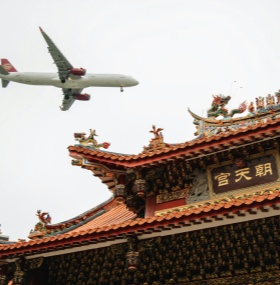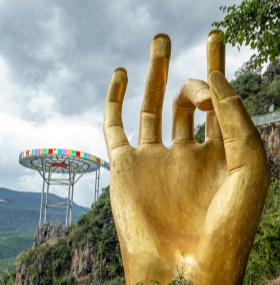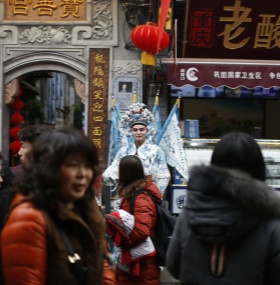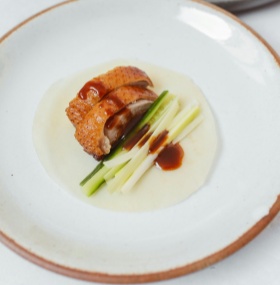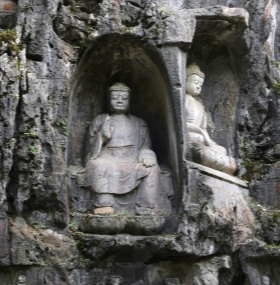When traveling to China, managing your finances effectively is key to ensuring a smooth and enjoyable trip. From currency exchange to digital payments, it’s essential to understand how money works in the country. This guide will provide practical tips on budgeting, handling payments, and avoiding common financial pitfalls to help you manage your money efficiently during your trip to China.
Kindly contact us for more help and suggestion about your China tour.
1. Currency: Understanding the Chinese Yuan (CNY)
The official currency of China is the Renminbi (RMB), commonly referred to as Yuan (CNY). Banknotes come in 1, 5, 10, 20, 50, and 100 yuan denominations, while coins are available in 1, 2, and 5 jiao (1 jiao = 0.1 yuan).
Tip: While larger denominations are useful for shopping or paying for services, it’s a good idea to carry smaller bills (10-20 yuan) for local markets, street food, or small purchases, where larger notes may not be accepted.
2. Digital Payments: The Preferred Payment Method
One of the standout features of traveling in China is the widespread use of mobile payments. WeChat Pay and Alipay are the dominant apps for making purchases, paying bills, and even booking taxis or restaurants.
Setting Up Digital Payments
WeChat Pay is integrated within the WeChat messaging app, which is essential for social interactions in China. You can use it to pay for everything from subway rides to shopping.
Alipay works similarly, offering services from paying for utilities to purchasing tickets for attractions.
Tip: While foreign credit cards can be used on these apps, linking them to a Chinese bank account will allow you to easily add funds to your mobile wallet. If you don't have a Chinese bank account, you can still make payments through foreign credit cards, though availability may vary at some stores.
3. Handling Cash: When and Where to Use It
Despite the dominance of mobile payments, cash is still important in certain situations, especially in smaller towns or more traditional markets where digital payments may not be accepted.
Where Cash is Useful
Local street markets or small shops often prefer cash.
Taxis in smaller cities or rural areas may not accept digital payments, so having cash on hand is important.
Tips: While tipping isn’t a common practice in China, small tips in cash may be appreciated for exceptional service, such as at hotels or by guides.
Tip: You can exchange your currency at banks, exchange counters, or ATMs. Avoid changing money at hotels or airports as the rates are often less favorable.
4. Currency Exchange: How and Where to Exchange Money
When traveling to China, you’ll need to convert your home currency into Chinese Yuan (CNY). Here's how you can exchange money efficiently:
Before You Arrive
It’s helpful to exchange some currency before your departure to cover initial expenses like transportation or meals upon arrival in China.
Tip: Use online currency converters to check exchange rates before traveling and visit local banks or currency exchange providers for competitive rates.
After You Arrive
Once in China, you can exchange your foreign currency at banks, ATMs, or currency exchange kiosks at international airports, train stations, or shopping malls.
Tip: ATMs typically offer a competitive exchange rate and may be more convenient than currency exchange counters. Be sure to check the foreign withdrawal fees with your bank in advance.
5. Using Credit and Debit Cards in China
Credit and debit cards are commonly accepted at international hotels, shopping malls, and high-end restaurants, but they are not as widely used in smaller shops or rural areas. The most widely accepted cards are Visa and Mastercard.
Tip: Always inform your bank before traveling to China to avoid your card being blocked due to foreign transactions.
UnionPay: China’s Domestic Card System
While Visa and Mastercard are accepted in major cities, UnionPay, China’s domestic card system, is more commonly used across the country. You can find UnionPay cards offered by local banks, and some international banks issue UnionPay cards as well.
Tip: If you plan to stay longer in China, applying for a UnionPay card may make transactions more convenient, especially in smaller businesses or less urbanized areas.
6. Transportation: How to Pay for Travel in China
China offers a variety of transportation options, many of which accept mobile payments. Here’s how to handle payments for different modes of transport:
Subways and Public Transport
Cities like Beijing, Shanghai, and Guangzhou have extensive subway systems that allow passengers to pay with their smartphones using WeChat Pay or Alipay.
Tip: For metro rides, download the local city’s metro app and link it to your mobile wallet for easy access to the subway system.
Taxis and Ride-Hailing Services
While taxi drivers in major cities often accept cash, ride-hailing services like DiDi (similar to Uber) are more likely to accept mobile payments or credit cards, making them a convenient option.
Tip: Use DiDi for ride-hailing and pay via WeChat Pay or Alipay.
High-Speed Trains
High-speed trains between major cities like Beijing, Shanghai, and Xi’an are a popular way to travel. Tickets can be purchased through 12306 (China’s official train booking website) or through apps like WeChat.
Tip: Always buy your tickets in advance, especially during peak travel times like Chinese New Year.
7. Budgeting for Meals: Eating Out on a Budget
Food in China can range from very inexpensive street food to high-end dining experiences. Mobile payments and cash are both commonly accepted at most food establishments.
Street Food and Small Restaurants
Street food is a great way to experience Chinese cuisine at affordable prices. You can pay directly with cash or use mobile apps like WeChat Pay and Alipay for transactions.
Mid-range Restaurants and Food Courts
For a more substantial meal at mid-range restaurants or shopping malls, mobile payments are generally accepted. Many larger restaurants in cities will also accept credit cards.
Fine Dining
In high-end restaurants, credit cards and mobile payments are typically accepted, but it's always best to confirm in advance, especially in more remote areas.
8. Tips for Financial Safety in China
Carry a Backup Card: Always carry more than one method of payment, such as cash, a credit card, and a mobile payment option, in case one method fails.
Secure Your Wallet: Use a money belt or an RFID-blocking wallet to store your passport, credit cards, and cash securely.
Monitor Your Spending: Use mobile apps to track your spending, especially when using mobile payments for convenience.
Related Posts
Create Your Customized Trip
Take about 2 minutes to fill the form to tell us how you like to travel, and get a reply within 1 working day.


